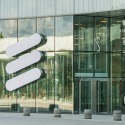
Ericsson has landed a $3.5 billion, multi-year 5G deal with T-Mobile US just weeks after the the operator signed a contract worth the same amount with rival supplier Nokia. (See Nokia Reels In $3.5B 5G Deal With T-Mobile US.)
Announced in quick succession, the two 5G deals mean T-Mobile, which operates the third-biggest mobile network in the US, will spend at least $7 billion on 5G deployment with Europe's two main network equipment vendors.
T-Mobile US Inc. also becomes the first publicly announced customer of Ericsson AB (Nasdaq: ERIC)'s modified radio access network (RAN) platform. Just last week, the Swedish company unveiled several new features for its Ericsson Radio System (ERS), including a RAN Compute element that should help operators like T-Mobile to roll out virtualized or cloud RAN systems, whereby the baseband functions are run as software programs on common, off-the-shelf equipment. (See Ericsson Links 5G Hands With Juniper & ECI, Snubs Cisco & Ciena.)
The new-look ERS also comes with spectrum-sharing software so that customers can allocate spectrum to a particular network technology on a dynamic, millisecond basis. Ericsson said its products would function across all of the spectrum bands that T-Mobile has at its disposal.
In its statement on the T-Mobile deal, Ericsson said it would supply 5G New Radio hardware and software to the operator, as well as various digital services, including dynamic orchestration technology, business support systems and its Ericsson Cloud Core.
The deal comes amid a flurry of 5G activity in the US market, where all four of the nationwide mobile networks are gearing up for investment in the next-generation technology.
"While the other guys just make promises, we're putting our money where our mouth is," said Neville Ray, T-Mobile's chief technology officer, in a typically combative statement. "With this new Ericsson agreement we're laying the groundwork for 5G -- and with Sprint we can supercharge the 5G revolution."
T-Mobile announced plans to merge its business with Sprint Corp. (NYSE: S) earlier this year, but the proposed tie-up has yet to secure the approval of US competition authorities. Executives have repeatedly argued that a combined entity will be able to roll out 5G services much faster than if the companies remain separate, hoping to sway US authorities concerned that China might be winning the 5G race. (See Unicom, Telecom Merger: A 5G Bull in a China Shop and T-Mobile & Sprint: Marriage made in hell.)
Ericsson is already presenting the T-Mobile contract as a vindication of its recent move to hire additional US staff. "We have recently decided to increase our investments in the US to be closer to our leading customers and better support them with their accelerated 5G deployments," said Niklas Heuveldop, Ericsson's North America president, in the vendor's statement. "This agreement marks a major milestone for both companies." (See Ericsson Ramps Its 5G Activity in US.)
Indeed, just as Nokia Corp. (NYSE: NOK)'s 5G deal with T-Mobile appeared to be the largest it has announced so far, Ericsson's contract looks bigger than anything it has previously disclosed in the 5G area.
For all the latest news from the wireless networking and services sector, check out our dedicated mobile content channel here on Light Reading.
Both European vendors have undoubtedly benefited from the US clampdown on Chinese rivals Huawei Technologies Co. Ltd. and ZTE Corp. (Shenzhen: 000063; Hong Kong: 0763), which are unable to sell products to the main US service providers because government watchdogs say the Chinese companies are a potential threat to national security. US measures against ZTE, after it was charged with breaching sanctions against Iran and North Korea, may also have buoyed Ericsson and Nokia in recent months. (See Trump Offers Tax Break to Apple to Build in US and ZTE Racks Up $790M Q1 Loss on US Ban.)
Out of the two, however, it is Ericsson that has provided cheer for investors in 2018. The Swedish company's share price has gained 43% in Stockholm since the start of the year amid signs of a turnaround under CEO Börje Ekholm, who took charge of the company in early 2017. Ericsson had racked up a series of operating losses until the second quarter of 2018, when it turned a small profit and hailed improvements at its main networks business. (See Ericsson vs. Nokia: Who's Ahead in 5G Right Now?)
Under its own 5G deal with T-Mobile, Nokia said it would provide radio platforms, core network technology and management systems, offering support for the 600MHz frequencies T-Mobile acquired in last year's auction as well as much higher 28GHz spectrum.
While Nokia's performance has come as a disappointment to shareholders so far in 2018 -- with earnings marked by a fall in profitability -- CEO Rajeev Suri has continued to insist that 5G business will start to buoy figures toward the end of the current financial year.
Nokia has also continued to champion its "end-to-end" portfolio as a major advantage over Ericsson, which is largely focused on the development of radio access networks and lacks Nokia's IP, optical and fixed-line expertise.
Ericsson went some way toward addressing those shortcomings last week when it announced that it would collaborate with Juniper Networks Inc. (NYSE: JNPR) and ECI Telecom Ltd. on the development of transport technologies for its 5G customers.
— Iain Morris, International Editor, Light Reading
Read more about:
EuropeAbout the Author(s)
You May Also Like




_International_Software_Products.jpeg?width=300&auto=webp&quality=80&disable=upscale)







